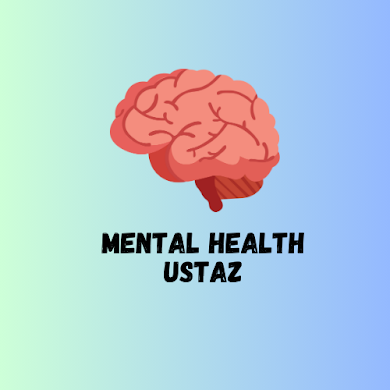Introduction: How to Manage Chronic Mental Health Conditions Chronic mental health conditions are those that last for at least three months or longer. They can have a significant impact on a person's daily life, including their relationships, work, and overall well-being. While there is no cure for many chronic mental health conditions, there are effective ways to manage them. With the right treatment and support, people with chronic mental health conditions can live full and productive lives. This article will discuss some of the most effective ways to manage chronic mental health conditions. It will also provide information on resources and support groups that can be helpful.
Treatment Options
There are a variety of treatment options available for chronic mental health conditions. The best treatment for you will depend on your specific condition and symptoms.
Some common treatment options include:
- Medication: Medication can be very effective in managing the symptoms of many chronic mental health conditions. However, it is important to note that medication can also have side effects. It is important to talk to your doctor about the risks and benefits of medication before starting any new treatment.
- Therapy: Therapy can help you understand and manage your mental health condition. It can also teach you coping skills and strategies for dealing with stress and difficult emotions. There are many different types of therapy available, so it is important to find a therapist who is a good fit for you.
- Support groups: Support groups can provide a safe and supportive space for people to talk about their experiences with mental health conditions. They can also provide information and resources on how to manage their condition.
Self-Care Strategies
In addition to treatment, there are a number of self-care strategies that can help you manage your chronic mental health condition. These strategies include:
- Getting enough sleep: Sleep is essential for good mental health. Aim for 7-8 hours of sleep each night.
- Eating a healthy diet: Eating a healthy diet can help improve your mood and energy levels. Avoid processed foods, sugary drinks, and excessive caffeine and alcohol.
- Exercising regularly: Exercise releases endorphins, which have mood-boosting effects. Aim for at least 30 minutes of moderate-intensity exercise most days of the week.
- Managing stress: Stress can worsen the symptoms of many chronic mental health conditions. Find healthy ways to manage stress, such as exercise, relaxation techniques, and spending time in nature.
- Building a support system: Having a strong support system is important for everyone, but it is especially important for people with chronic mental health conditions. Talk to your friends and family about your condition and let them know how they can support you.
FAQs
Q: What are some of the most common chronic mental health conditions?
A: Some of the most common chronic mental health conditions include:
- Depression
- Anxiety
- Bipolar disorder
- Schizophrenia
- Eating disorders
- Obsessive-compulsive disorder (OCD)
- Post-traumatic stress disorder (PTSD)
Q: What are the signs and symptoms of a chronic mental health condition?
A: The signs and symptoms of a chronic mental health condition will vary depending on the specific condition. However, some common symptoms include:
- Changes in mood
- Changes in sleep patterns
- Changes in appetite
- Difficulty concentrating
- Fatigue
- Social withdrawal
- Thoughts of suicide
Q: What should I do if I think I may have a chronic mental health condition?
A: If you think you may have a chronic mental health condition, it is important to talk to your doctor or a mental health professional. They can assess your symptoms and make a diagnosis. They can also recommend treatment options.
Q: How can I manage my chronic mental health condition?
A: There are a number of ways to manage a chronic mental health condition. Some of the most effective methods include:
- Following your treatment plan as prescribed by your doctor
- Practicing self-care strategies
- Building a support system
Resources and Support Groups
There are a number of resources and support groups available to help people with chronic mental health conditions. Some helpful resources include:
- The National Alliance on Mental Illness (NAMI): NAMI is a nationwide organization that provides support, education, and advocacy for people with mental health conditions and their families.
- The MentalHealth.gov website: This website provides information on mental health conditions, treatment options, and resources.
- The National Suicide Prevention Lifeline: This 24/7 hotline provides support and resources to people in suicidal crisis. Call 988 to connect.
If you are struggling to manage your chronic mental health condition, please reach out for help. There are people who care about you and want to support you.
For Further information visit here (https://www.newportinstitute.com/resources/mental-health/chronic-mental-illness/#:~:text=Some%20of%20the%20more%20common,%2C%20and%20practicing%20self%2Dcare.)




1 Comments
ReplyDeleteThank you for your detailed and caring advice to treating chronic mental health disorders. Your emphasis on integrating professional therapy with self-care measures resonates strongly. The mention of support groups as a useful resource is also notable. Engaging with people who have had similar experiences helps develop a feeling of community and understanding, which is essential for mental health. According to research, involvement in self-help groups can enhance coping abilities and lower hospitalisation rates.
Your advise on lifestyle changes, such as eating a well-balanced diet, exercising regularly, and getting enough sleep, is consistent with mental health organisations' suggestions. For example, the National Institute of Mental Health emphasises the significance of these elements in addressing mental health issues. If you're interested in learning more about stakeholder management, we invite you to visit this page where you'll find a wealth of resources, including articles, guides, and case studies.